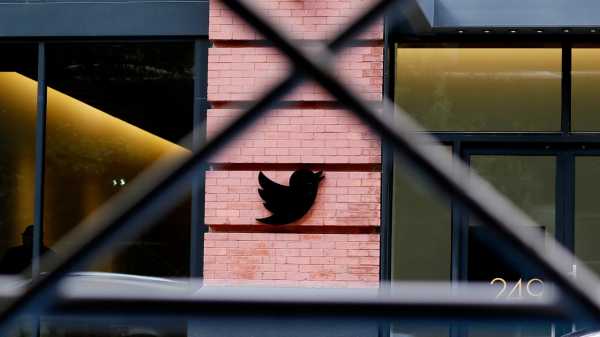
Since Elon Musk took over Twitter, last week, employees at the company have described an atmosphere of persistent chaos. News about their jobs has been more likely to come from journalists than from company leadership. Musk had been clear that he intended to lay off a large portion of the staff (though he denied early reports that it would be seventy-five per cent), and on Friday layoffs began in earnest. Employees learned their fate via e-mails—sent to their company accounts if they were keeping their jobs and on their personal accounts if they’d been deemed unnecessary. Entire teams vanished, including one on machine-learning ethics, and employee resource groups like Twitter Women were reportedly dismantled. All told, about half of the staff was let go. (In the newsletter “Platformer,” Casey Newton reports that laid-off employees will undergo a paid two-month “Non-Working” period in order to keep Twitter in compliance with labor laws.) Many “tweeps” memorialized their jobs on the platform they had helped build, tweeting mournful thanks to their former colleagues appended with blue heart emojis. One employee, who did not lose their job but said they might have preferred to, spoke anonymously with The New Yorker on Friday morning. They described watching some colleagues get the boot and others fall in line with Musk, and their feelings of guilt and apprehension about remaining at the company. They said they maintain a shred of hope that Twitter can improve as a product under the new regime, even if its culture has soured. But that doesn’t mean they want to stick around.
“I got the e-mail saying I still had a job. The anticipation wasn’t so stressful for me. I think it was for a lot of people, especially people who are on a work visa. Twitter is a pretty light-hearted place. People aren’t really cutthroat. The work-life balance is good—maybe that’s why we didn’t make enough money. I went to the office yesterday just because it could have been my last day. I wanted to say hello and goodbye to my co-workers. The mood around the office was . . . people were less panicking than just joking about it, dark humor. We have a shitposting channel on Slack and people are pretty good at posting memes about the acquisition. But I don’t think people are joking now.
“Elon started talking about buying Twitter back in April. We knew that things were moving forward when people posted Elon’s sink tweet in Slack. But then we found out from the news that Parag [Agrawal], our C.E.O., plus the C.F.O., the head of legal, and the chief general counsel were all gone. Our customer officer posted on Twitter that she resigned on Friday. We’re not hearing anything at all from inside the company.
“If I were a more deliberate person, I probably would have started looking for other jobs two or three months ago. Finding another job is a lot of effort, so I stayed. A lot of people have left in the last few weeks because they were looking for a new job anyway. A lot of people who were not let go are probably going to leave.
“I understand when people say they feel guilty when their co-workers get laid off, because it feels really shitty now. There’s already an ex-Twitter Slack that a lot of people joined before they even found out whether they got laid off. I actually wanted to get laid off. It would have given some kind of finality to everything. Maybe I could have just relied on the severance package, but I don’t know if Elon’s going to honor that.
“In the past week, a lot of employees got pulled into special projects. From what I’ve read, they’re reviving Vine, revamping the blue-check-verification feature, and building paid direct messages. Since last Thursday, people on those projects have been working 24/7. Some people were working hard because they are just really good, polished company men, which I respect—not because they were sucking up to Elon but because the Web site’s going to go down if they don’t do their jobs.
“Some of the choices concern me. Our former head of legal, Vijaya Gadde, is the one who did content-moderation policy, and now she’s gone. She was a defender of political-content moderation. I’ve heard that managers are now expected to code, because Elon hates the management. One of the things he didn’t like about the company was that the ratio of managers to engineers was too high. It seems like he wants to put engineers in charge of the company.
“In general, the culture at Twitter is pretty politically progressive. For the supermajority of people, the sentiment toward Elon is negative—and now this, it’s hellish. The company culture is going to change a lot under Elon. When he brought his own people in, it felt like Obama employees must have felt when they were going through the Trump transition. That sense of intrusion. None of the people coming back are people who Twitter employees would like to work with.
“Twitter occupies an interesting part of the social-media landscape. I don’t think there’s any service I know of that can replace it. Using Twitter is kind of like a Rorschach test: your feed is going to look like the kind of people you follow. I love Twitter, because I think I follow the right kind of people. I don’t think any other platform has the same number of academics, writers, poets, and movie directors who just hang out and post whatever thing they like to post. It’s smart, witty, dumb, funny.
“All products are less about ideas than about execution. Now that people are kind of hesitant about TikTok’s data issues, maybe a revived Vine can do something. If Twitter can generate some kind of revenue or bring in more users that way, it could be called a success. Maybe this verification thing could get rid of spam and lead to more high-quality users. I can see it going in the other direction, though: nobody signing up, Elon not making money based on subscribers.
“I’m weirdly not as pessimistic about content moderation. Right-wingers are already mad about Elon Musk because he’s not as non-moderating as they think. One insight is that content moderation is good for business. If Elon is optimizing for profit, it would be prudent for him to put in place the kind of content-moderation policies that would attract more advertisers.
“Product-wise, Elon owning Twitter could maybe have a positive outcome, but I think company-culture-wise probably not. Twitter people are nice people, they’re self-selecting. There are a lot of problems, but, over all, I like the product. I wouldn’t want to work for Facebook or Uber, but I thought that Twitter was something I could justify to myself and my friends. That’s what a lot of people who joined Twitter believed. Now there’s something morally icky about working for someone like Elon Musk, to helping him achieve whatever he’s trying to achieve. Jeff Bezos looks like a pretty good guy compared to Elon. One of the core reasons I joined Twitter has changed forever, so I don’t plan to stay a long time.”
Sourse: newyorker.com






